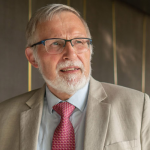

Travel Restrictions During Pandemics: Considerations and Consequences
Learn more about this webinar!
Travel Restrictions During Pandemics: Considerations and Consequences
Have the benefits of implementing cross-border travel bans aimed at containing the spread of disease outweighed the potential adverse effects on limiting the availability of health workers, the increase of xenophobia, and use based on political motivations rather than potential for improving public health?


Register
Course Information
- Audience: Public Health Professionals
- Format: Webinar
- Date/Time: Tuesday, March 1st, 2022
1:00 PM – 2:00 PM EST - Price: Free
- Length: 1 hour
- Credential(s) eligible for contact hours: Sponsored by New England Public Health Training Center (NEPHTC), a designated provider of continuing education contact hours (CECH) in health education by the National Commission for Health Education Credentialing, Inc. This program is designated for Certified Health Education Specialists (CHES) and/or Master Certified Health Education Specialists (MCHES) to receive up to 1 total Category I continuing education contact hours. Maximum advanced-level continuing education contact hours are 0. Provider ID: 1131137 Event ID: SS1131137_TRDPCC.If you are not seeking a CHES/MCHES contact hours, if you complete the post-test and evaluation, you will receive a Certificate of Completion. The Certificate will include the length of the course.
- Competencies: Data Analytics and Assessment Skills
- Learning Level: Awareness
- Companion Trainings: None
- Supplemental materials:None
- Pre-requisites: None
About this Recording
Cross-border travel bans have long been controversial in public health. While travel bans may help contain disease spread, there are also concerns that they may limit the availability of health workers where needed, and that they may encourage xenophobia. During the COVID-19 pandemic, travel bans were implemented widely by many countries (U.S. included), in an effort to contain the virus and control its spread. But how effective were they in suppressing the spread? Is it fair to look at the effectiveness of these bans without considering if they do more harm than good? Dr. William J. Bicknell endowed this lectureship to support excellence, rigor, imagination and risk-taking in the teaching and practice of public health through annual lectures.
What you'll learn
At the end of the recording, participants will be able to:
- Explain the legal right to restrict travel in the United States and its potential for misuse
- Describe the legal framework and principles that can provide structure for decision making about international travel restrictions in times of uncertainty
- Discuss the evidence for the effectiveness of travel restrictions in decreasing the transmission of disease and reducing risk
- Discuss the evidence for the role of COVID testing and vaccines in travel restrictions
- Describe lessons learned about quarantine, isolation, and travel restrictions from the historical example of yellow fever
Moderator

Sharmila Devi
@SHARMILADEVI2
Writer and Editor
Sondra Crosby
@SONDRACROSBY16
Associate Professor of Health Law, Ethics & Human Rights, Boston University School of Public Health
Eskild Petersen
@AARHUSUNI_INTProfessor Emeritus, Infectious Diseases, Institute for Clinical Medicine, Aarhus University, Denmark

Barbara Von Tigerstrom
@USASKLAWProfessor, College of Law, University of Saskatchewan

Samantha Vanderslott
@SJVANDERS
University Research Lecturer at Oxford Vaccine Group, University of Oxford
Sharmila Devi is a writer and editor with more than 25 years’ experience working for international agencies, newspapers and consultancies. She was a correspondent in the Middle East and Africa, including more than five years as the Jerusalem correspondent for the Financial Times during the second intifada, and has reported developments in politics, economics, global health and climate change. She also worked in New York as correspondent for the UAE-based National newspaper and in Iraqi Kurdistan as a correspondent for the English-language service of the local media network Rudaw during the conflict with ISIS. She writes and edits major reports for NGOs such as Unicef and for political risk consultancies about politics and global health. She is a long-standing contributor to the world report pages of The Lancet, writing about global health issues, conflict and humanitarian crises. She covered the COVID-19’s impact around the world, including how travel restrictions hampered the global response to the pandemic.
Subject Matter Experts
Sondra Crosby, MD is a medical doctor and Professor of Medicine at Boston University, specializing in internal medicine. She is also a faculty member of the Health Law, Bioethics, and Human Rights department at the Boston University School of Public Health. Dr. Crosby is notable for being one of the first doctors allowed to travel to Guantanamo to independently examine Guantanamo captives. She is also notable for serving as the director of medical care at the Boston Center for Refugee Health and Human Rights. She examined over 300 torture victims at the Center. Dr. Crosby is one of the authors of Broken Laws, Broken Lives: Medical Evidence of Torture by the US, published by Physicians for Human Rights. According to Physicians for Human Rights, Dr. Crosby has “written over 200 affidavits documenting medical and psychological sequelae of torture.”
Professor Eskild Petersen is a Professor Emeritus of Infectious Diseases, Institute for Clinical Medicine, Faculty of Health Science, Aarhus University, Denmark. He chairs the ESCMID Emerging Infections Task Force, Basel, Switzerland. Professor Petersen is internationally renowned for his extensive contributions to global health, therapeutic drug monitoring, multi-drug resistant infections, implant associated infections, travel medicine and emerging infections. Professor Petersen graduated in 1978 from Medical School, University of Aarhus, Denmark; 1980 Diploma in Tropical Medicine and Hygiene, University of Liverpool; 1985 Specialist Degree in Infectious Diseases; 1988 Specialist Degree in Tropical Medicine; 2002 Master of Business Administration, Copenhagen Business School; 2005 DMSc., Karolinska Institute, Stockholm, Sweden. He served six years on the board of the ESCMID Study Group on Migration and Travel Medicine, lecturing on immunizations in pregnancy on several ESCMID workshops. Professor Petersen retired from clinical service in June 2020. He is Editor-in-Chief of the International Journal of Infectious Diseases since 2012. Associate editor of Travel Medicine and Infectious Diseases. 2010-2018, on the Editorial board of Journal of Clinical Microbiology, American Association of Clinical Microbiology. 2011–2012 Editorial board, Expert Review of Anti-Infective Therapy. 2011 – 2012. 1999 – Co-Editor (Moderator) on parasitic diseases. ProMED (www.promedmail.org). Professor Petersen has published over 350 original papers in peer reviewed journals with an H-index of 53. He has edited several textbooks, including the popular textbooks “Infectious Disease: a Geographic Guide”.
Barbara von Tigerstrom is a Professor at the University of Saskatchewan College of Law, where she has been a member of faculty since 2005, after working at the University of Alberta Health Law Institute and the University of Canterbury School of Law. She holds a law degree from the University of Toronto and Ph.D. in law from the University of Cambridge. She has received several awards for excellence in teaching and research, and research grants from the Canadian Institutes of Health Research (CIHR) and the Stem Cell Network, among others. Dr. von Tigerstrom’s main areas of teaching and research are health law and policy, information and privacy law, and tort law. Her work in public health examines domestic and international legal issues relating to both infectious and non-communicable diseases. Since March 2020 she has been engaged in a research project funded by the CIHR on the International Health Regulations (IHR) and COVID-19 (with Principal Investigator Dr. Kumanan Wilson and others), with her work focusing on travel restrictions and the IHR. In addition to her teaching and research, Dr. von Tigerstrom contributes her expertise to University and external committees including the University of Saskatchewan Biomedical Research Ethics Board and the Law Reform Commission of Saskatchewan.
Samantha Vanderslott is a University Research Lecturer at the Oxford Vaccine Group at the University of Oxford working on health, society, and policy topics. Her current projects are about: policies for neglected tropical diseases; outbreak response; a history of typhoid fever; and attitudes to vaccines. She draws on perspectives from sociology, anthropology, history, global health, and science and technology studies (STS).
Registration
Select the Enroll Me button below to register for this recording. If you have any trouble accessing the recording, contact support@nephtc.org.
Acknowledgement: This project is/was supported by the Health Resources and Services Administration (HRSA) of the U.S. Department of Health and Human Services (HHS) under grant number UB6HP31685 “Regional Public Health Training Center Program.” This information or content and conclusions are those of the author and should not be construed as the official position or policy of, nor should any endorsements be inferred by HRSA, HHS or the U.S. Government.
